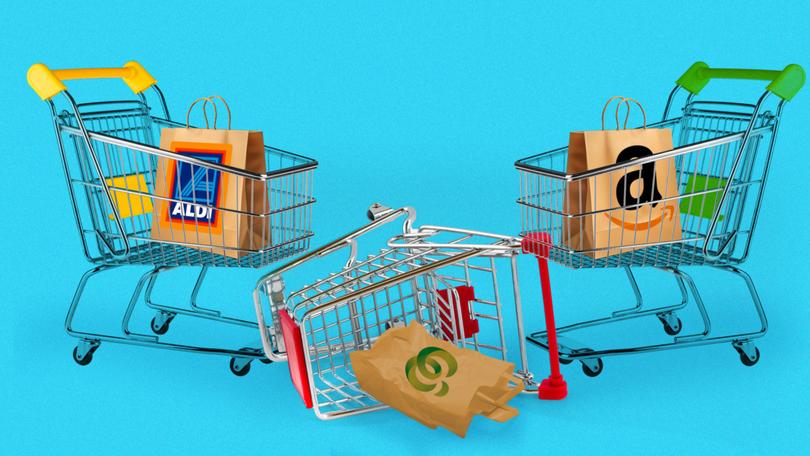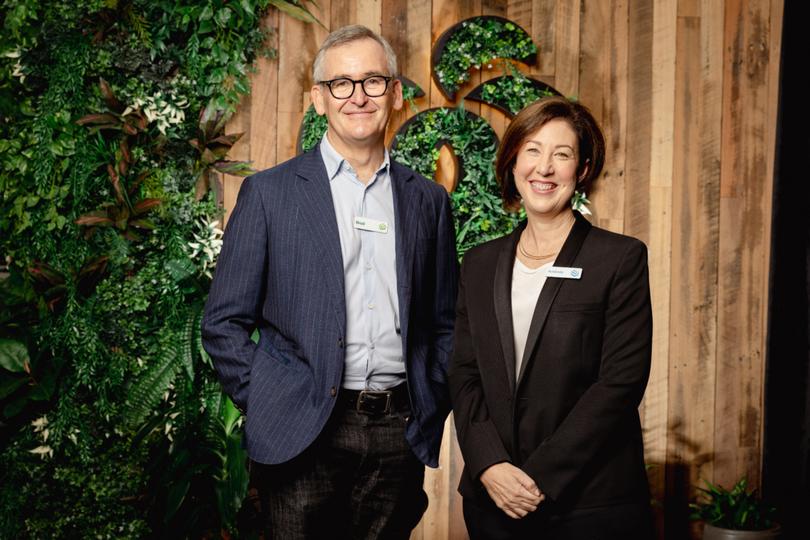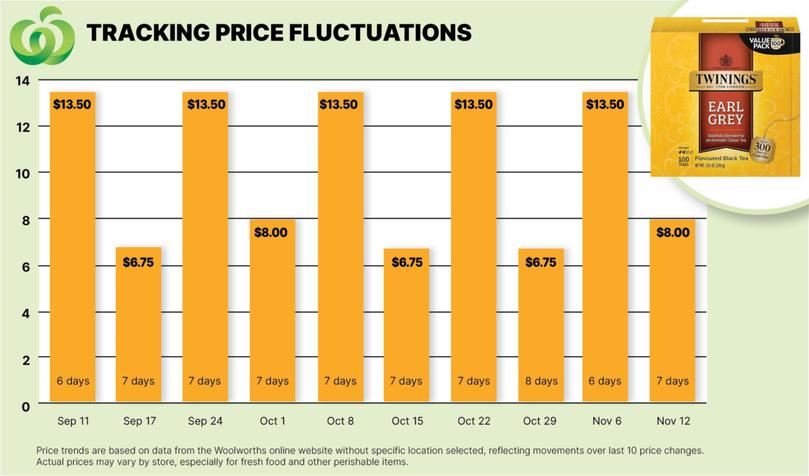JACKSON HEWETT: ACCC grilling on supermarkets takes a price check on Woolworths’ future
JACKSON HEWETT: Woolworths has responded to its ACCC grilling by pointing out the market power of one of its growing competitors.

If there’s one clear outcome from the first day of the ACCC’s grilling of supermarket executives, it’s how critical ALDI is, as old Democrats leader Don Chipp would say, to “keep the bastards honest.”
It also revealed a longer-term threat to the power of Woolies and Coles.
Under steady and forensic cross-examination by counsel Naomi Sharp SC, Woolies execs, including current managing director Amanda Bardwell and former MD Brad Banducci, admitted that the most important player in terms of setting price was the German-owned grocery chain.
Sign up to The Nightly's newsletters.
Get the first look at the digital newspaper, curated daily stories and breaking headlines delivered to your inbox.
By continuing you agree to our Terms and Privacy Policy.“ALDI sets very, very competitive prices. You want to be competitive against everyone. But in truth, you do start with ALDI and making sure you have competitive prices against them, given how important they are in the marketplace,” Mr Banducci said.
Despite accounting for only 10 per cent of the total market, ALDI has disrupted the cosy competitive relationship between Woollies and Coles. ALDI’s aggressive pricing strategy has been particularly top-of-mind during the current cost of living crisis. As customers have become more price-conscious, Woolworths has upped its home brand range, conscious that Aldi’s own brand products were clearly revealing a significant price gap. In their submission to the ACCC’s inquiry, ALDI referenced PWC research that showed they were 15-20 per cent cheaper on average.

Woolworths has been fighting back, both against ALDI, and in terms of holding onto price-sensitive consumers by increasing the supply of own products. Products like sugar, flour, and cans of tomatoes for example are among the many products given more prominence in store. Sales of own brand products grew by as much as 8 per cent last year and on average are about 30 per cent cheaper than a branded product in its store.
This hearing, called for by Treasurer Jim Chalmers as part of the government’s attempt to shift the blame of higher prices onto corporations, has none of the theatrics of the banking royal commission, where individual tales of financial woe presented to bank execs left them stunned like deer in headlights. Woolworths has argued that even if they wanted to put up prices, the competitive nature of the industry wouldn’t let that happen. But trying to communicate how “fiercely competitive” the supermarket industry is, they have revealed some of the longer-term issues that could well threaten the sector’s near duopoly.
Customers let fingers do the walking
“The nature of retailing in Australia for groceries is dramatically changing,” Ms Bardwell said. “Over the last couple of years, customers have increasingly shopped online, across not just Woolies and other traditional supermarkets, but increasingly using Amazon and other online competitors.”
Online shopping now makes up 15 per cent of Woolies’ customer spend and is the fastest growing part of the business. Online also has a lower-margin business than physical stores.
Discounted products are clearly marked on the home page and the ability to price compare is frictionless.
But what also became clear during the session is how Amazon is increasingly becoming a threat.
The global retail giant is trying to snatch a significant chunk of Woolies’ basket, offering packaged goods, healthcare and wellness products and pet food.
Ms Bardwell estimates that 40 per cent of Woolies’ product mix is now available on Amazon for same day delivery, which is free to is Prime customers.
“I consider them to be a very strong emerging competitor to Woolworths,” Ms Bardwell said.
“During their Prime Day offering, just a couple of weeks ago, 30 per cent of the range that they offered at substantial discounts was grocery products.

Ms Bardwell appeared acutely aware of how “dramatically” Amazon has grown in other markets as it enters into new categories, which is why Woolies has spent hundreds of millions of dollars in new fulfilment centres and the digital experience.
Young people are the drivers of online shopping, and the price comparison that comes with it, which means that going forward Woolies and Coles will have to work harder to drive margin as sales shift from in-store to online.
Price-sensitive consumers have also found a new consumer champion on TikTok, where a data scientist known as “Price Check Guy” picks apart the sales cycles of the big supermarkets. Half a million people have viewed his video showing that a “Black Friday” special on tomato sauce at Coles is anything but.
“On sale” at 2 for $6, or $3 per bottle, he revealed that the sauce was being sold the previous week for $2.80.
The Price Check Guy built a plug-in for the web browser that shows the price trend of a product and it is remarkable how consistently the discounted price is available at Coles and full price at Woolies one week and then flips between the retailers the following week.
Lower margin, higher cost
At one end, price-conscious customers have more ways to target discounts, and once they do, they are more expensive to serve.
Unlike a shopper in store, each online order has to picked and packed by a Woolworths employee. Woolworths is also on the hook for delivery, and while it is not clear whether the delivery fee is covering that cost, Ms Bardwell seemed to indicate that they had to be competitive with Amazon’s free Prime delivery.
“We think it’s incredibly important in terms of future-proofing the business,” Ms Bardwell said.
Amazon has one other big advantage that will allow them to eat away at Woolworths margins.
Pantry items with a long shelf life are more valuable than fresh items like meat, dairy and fresh produce. Those items, part of the cold-chain, might spoil and require more handling, for instance, being returned to refrigerators at the end of the day.
Amazon, with its massive, highly automated fulfilment centres, can keep long shelf-life items near indefinitely, and has the ability to fetch those items far more cost effectively.
For now, in the market’s eyes at least, the supermarkets are still an attractive enough proposition.
While investment bank JP Morgan told clients it expects the public hearings to be a “negative catalyst” for both stocks, Macquarie expects the supermarkets to continue to perform well.
Macquarie looked at a similar inquiry in the UK, which found that the supermarkets hadn’t been price gouging, and were reacting to unavoidable inflationary pressures. The bank also believes digital loyalty programs should deliver long-term benefits as personalised offers tend to drive customer loyalty. But reputation risk is a present threat.
“Given (the) political sensitivity of the inquiry, there is a risk the ACCC will “do something” alongside voter concerns on the cost-of-living,” Macquarie said.
There is no doubt that consumer anger is boiling over when it comes to inflation: it is becoming a top-of-mind issue in elections.
Woolworths and Coles would be highly aware that the negative headlines will drive consideration of alternative options like ALDI, Amazon and Costco. They will need to be highly price conscious but not too much, according to Citi analyst Adrian Lemme.
“Future margin growth relies on the retention of cost savings and a rational supermarket industry,” he cautioned.

